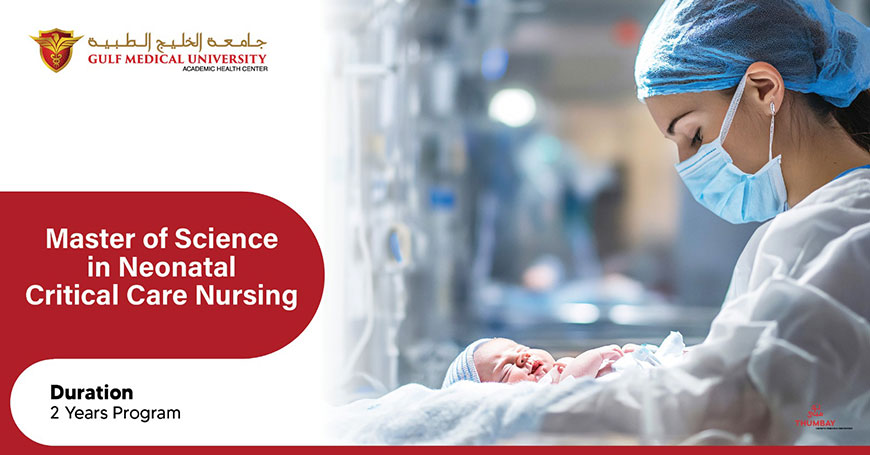In response to the growing demand for specialized nursing professionals in the UAE, as recognized by relevant stakeholders in the Education sector, Community, and Health Services, the College of Nursing at GMU has developed the Master of Science in Neonatal Critical Care Nursing (MSNCCN) program. This program is tailored to address the current and emerging healthcare needs of the UAE by preparing professional nurses with advanced education and contributing to healthcare advancements through innovative research, scholarship, and service.
The MSNCCN program specifically caters to the needs of neonatal nurses, equipping them with a high level of expertise in neonatal critical care settings. The program’s innovative design offers flexible study options, supporting student learning while enabling the practical application of knowledge. Through this comprehensive and adaptive educational approach, the MSNCCN program aims to enhance the quality of neonatal care and meet the specialized needs of the healthcare community in the UAE.
MSNCCN is a 2 year (4 Semesters) full-time program that prepares nurses as specialized providers of health care to neonates and their families in acute care settings. The primary focus of the program is to prepare graduates to promote, maintain, supervise, and restore health, identify health risks, and assess, diagnose, and manage acute illness in neonates. The ability to function as an educator, leader, consultant, advocate, and change agent is essential to the development of evidence base knowledge and clinical expertise in this role.


